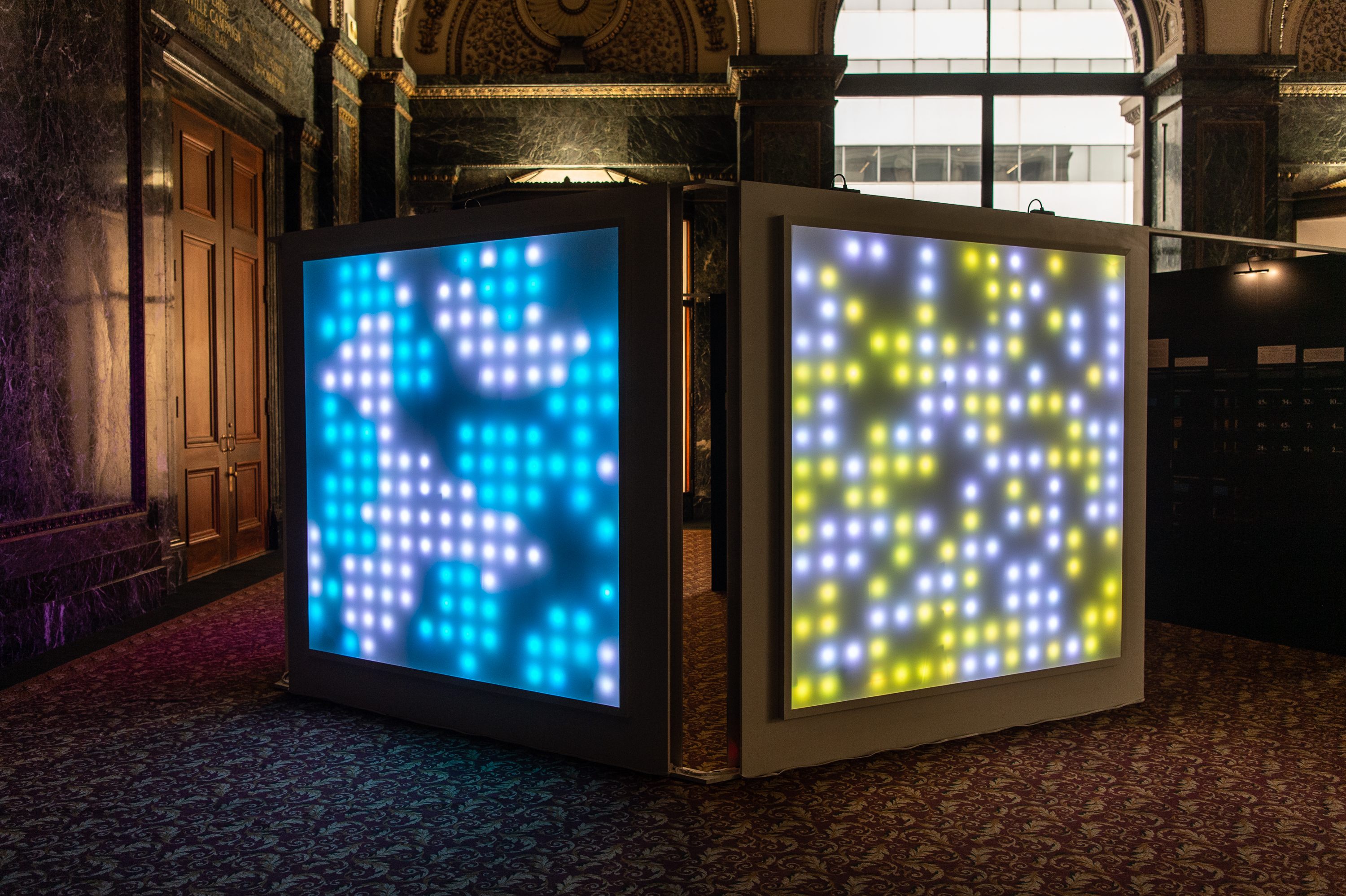Homophily: The Urban History of an Algorithm at the 2019 Chicago Architecture Biennial

Homophily: The Urban History of an Algorithm will be on view at the Chicago Architecture Biennial from September 19, 2019 - January 5, 2020.
An exhibit focusing on the urban origins of the term homophily, its formalization and proliferation through the algorithmic logics of online networks, and the risks we run when it becomes not just a descriptive model but a prescriptive rule for social life.
A companion essay to the exhibition is published in e-flux Architecture here.
Coined by researchers Paul Lazarsfeld and Robert Merton in an influential 1954 study of friendships in Addison Terrace, a public housing project in Pittsburgh, the concept of “homophily” names “the tendency for friendships to form between people ‘of the same kind.’” Focusing on the residents' attitudes toward racial integration and segregation, they concluded that close friendships form and persist not simply on the basis of shared identities but thanks to shared values and beliefs. The model of homophily was born in this mid-century urban struggle over race and space.
CSR’s installation looks at the legacy of the concept of homophily, presenting a set of data visualizations that show its contemporary applications in the digital world. Today homophily underlies much of what happens in our online interactions, following the assumption that “similarity breeds connection”. What began as a formal explanation of social life in a housing complex has become an algorithm that shapes much of the dynamics of digital space, driving everything from targeted advertising, to viewing recommendations, to predictive policing on the streets of Chicago. As homophily turns from a description into a norm, it helps create a social world in which previously-held identities and positions are reinforced and concentrated rather than challenged or hybridized.
Project Team:
Laura Kurgan, Principal Investigator, and Director
Dare Brawley, Assistant Director Brian House, Mellon Research Scholar
Jia Zhang, Mellon Research Scholar
In collaboration with:
Wendy Hui Kyong Chun, Canada 150 Research Chair in New Media and Professor of Communication, Simon Fraser University
Graduate Research Assistants:
Alanna Browdy, Rebecca Cook, Audrey Dandenault, Tola Oniyangi, Andrea Partenio, Juvaria Shahid
Graphic Design:
Studio TheGreenEyl
Research for this exhibition was supported by the Andrew W. Mellon Foundation, the Canada 150 Research Chairs Program, and the Columbia Graduate School of Architecture, Planning and Preservation. With thanks Leslie Gill Architect for design consultation, and to the Columbia Rare Book and Manuscript Library, Harriet Zuckerman, Robert Lazarsfeld for assistance and reproduction permissions on archival materials.